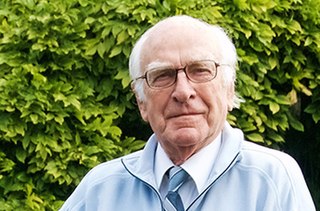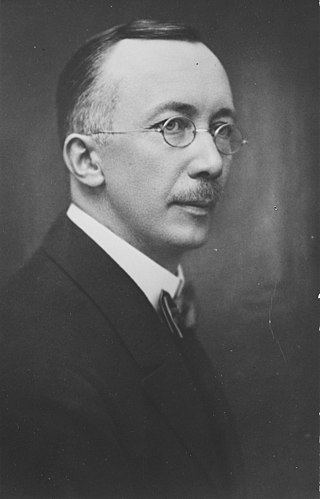Related Research Articles

The University of British Columbia (UBC) is a public research university with campuses near Vancouver and Kelowna, in British Columbia, Canada. Established in 1908, it is the oldest university in British Columbia. With an annual research budget of $747.3 million, UBC funds 9,675 projects annually in various fields of study within the industrial sector, as well as governmental and non-governmental organizations.

Cecil Howard Green was a British-born American geophysicist, electrical engineer, and electronics manufacturing executive, who trained at the University of British Columbia and the Massachusetts Institute of Technology.

Nitobe Inazō was a Japanese agronomist, diplomat, political scientist, politician, and writer. He studied at Sapporo Agricultural College under the influence of its first president William S. Clark and later went to the United States to study agricultural policy. After returning to Japan, he served as a professor at Sapporo Agricultural College, Kyoto Imperial University, and Tokyo Imperial University, and the deputy secretary general of the League of Nations. He also devoted himself to women's education, helping to found the Tsuda Eigaku Juku and serving as the first president of Tokyo Woman's Christian University and president of the Tokyo Women's College of Economics.
The Institute of Pacific Relations (IPR) was an international NGO established in 1925 to provide a forum for discussion of problems and relations between nations of the Pacific Rim. The International Secretariat, the center of most IPR activity over the years, consisted of professional staff members who recommended policy to the Pacific Council and administered the international program. The various national councils were responsible for national, regional and local programming. Most participants were members of the business and academic communities in their respective countries. Funding came largely from businesses and philanthropies, especially the Rockefeller Foundation. IPR international headquarters were in Honolulu until the early 1930s when they were moved to New York and the American Council emerged as the dominant national council.

John Seymour Conway was Professor Emeritus of History at the University of British Columbia, where he taught for almost 40 years. His work focused on the role of the Vatican and German churches during the Holocaust; on 20th-century Christian–Jewish relations; and on the Holocaust in Hungary and Slovakia.
Alan Mackworth is a professor emeritus in the Department of Computer Science at the University of British Columbia. He is known as "The Founding Father" of RoboCup. He is a former president of the Association for the Advancement of Artificial Intelligence (AAAI) and former Canada Research Chair in Artificial Intelligence from 2001 to 2014.

Eino Rudolf Woldemar Holsti was a Finnish politician, journalist and diplomat. He was the Minister of Foreign Affairs in 1919–1922 and in 1936–1938 and a member of the Finnish Parliament in 1913–1918 representing the Young Finnish Party.

The University of British Columbia Press is a university press that is part of the University of British Columbia. It is a mid-sized scholarly publisher, and the largest in Western Canada.

William Henry Mathews (1919–2003) was a Canadian geologist, volcanologist, engineer, and professor. He is considered a pioneer in the study of subglacial eruptions and volcano-ice interactions in North America. Many of his publications continue to be regarded as classics in their field.
Olavi Rudolf Holsti was an Finnish-American political scientist and academic. He held the position of George V. Allen Professor Emeritus of Political Science at Duke University. He was noted for his writings on international affairs, American foreign policy, content analysis, decision-making in politics and diplomacy, and crises.
The Peter Wall Institute for Advanced Studies was founded in 1991 and is the senior research institute at the University of British Columbia. It supports basic research through collaborative, interdisciplinary initiatives. The institute brings together UBC scholars with researchers from around the world "to work together on innovative research, develop new thinking that is beyond disciplinary boundaries, and engage in intellectual risk-taking." The institute has a varied program of scholars in residence, visiting scholars, distinguished professorship, multiple speaker series, and major special events.
The Canadian Political Science Association is an organization of political scientists in Canada. It is a bilingual organization and publishes the bilingual journal Canadian Journal of Political Science. The organization is headquartered in Ottawa, Ontario, and has an annual convention in conjunction with the Canadian Federation for the Humanities and Social Sciences. It was founded in 1912.

Adam Jones is a political scientist, writer, and photojournalist based at the University of British Columbia Okanagan in Kelowna, British Columbia, Canada. He is the author of Genocide: A Comprehensive Introduction and other books in genocide studies. He is Executive Director of Gendercide Watch. He was chosen as one of "Fifty Key Thinkers on the Holocaust and Genocide" for the book of that name, which was published in 2010. He is also a published photographer, both in print and online under a Creative Commons license.

The International Studies Association (ISA) is a US-based professional association for scholars and practitioners in the field of international studies. Founded in 1959, ISA has been headquartered at the University of Connecticut in Storrs since 2015. Its executive director is Mark A. Boyer. It has been a member of the International Science Council since 1984.
Bruno D. Zumbo is a Canadian mathematical scientist trained in the tradition of research that combines pure and applied mathematics with statistical and algorithmic techniques to develop theory and solve problems arising in measurement, testing, and surveys in the social, behavioral, and health sciences. He is currently Professor and Distinguished University Scholar, the Canada Research Chair in Psychometrics and Measurement, and the Paragon UBC Professor of Psychometrics & Measurement at University of British Columbia.
Margaret Schabas is a Canadian philosopher and professor of philosophy at the University of British Columbia notable for her work in the history and philosophy of science, particularly the science of economics. Schabas has also published numerous articles and book chapters on the British empiricists, David Hume, Adam Smith, and John Stuart Mill.
Holsti is a surname. Notable people with the surname include:
Peter Francis Harnetty is professor emeritus of Asian Studies at the University of British Columbia.
Walter D. Young was a Canadian political scientist who has written several books that are considered the definitive resources for the Co-operative Commonwealth Federation and the New Democratic Party. His experiences as a democratic socialist in Canada led to his involvement in the founding of the NDP, provincial politics in British Columbia, and a variety of educational initiatives at The University of British Columbia and The University of Victoria.
Kenneth D. Craig is a Canadian psychologist, educator and scientist whose research primarily concerns pain assessment, understanding pain in children and populations with communication limitations, and the social dimensions of pain.
References
- 1 2 Holsti, Kalevi (2016). A Pioneer in International Relations Theory, Foreign Policy Analysis, History of International Order, and Security Studies. SpringerBriefs on Pioneers in Science and Practice. Vol. 41. Springer. pp. 3–12. doi:10.1007/978-3-319-26624-4. ISBN 9783319266244.
- ↑ "Ole Holsti". Herald Sun. 8 July 2020. Retrieved 24 October 2020.
- 1 2 3 "Kal Holsti". University of British Columbia. Retrieved 24 October 2020.
- 1 2 3 "Holsti, Kalevi J." Writers Directory. 2005.
- ↑ Jones, Adam (July 2002). "Interview with Kal Holsti". Review of International Studies. 28 (3): 619–633. doi:10.1017/S0260210502006198. JSTOR 20097814. S2CID 146186764.